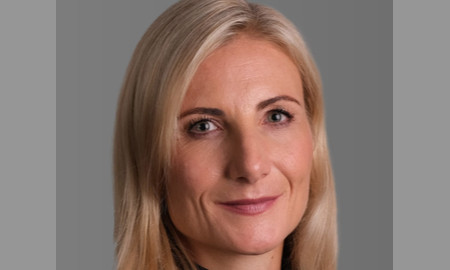Sign up for our free daily newsletter
YOUR PRIVACY - PLEASE READ CAREFULLY DATA PROTECTION STATEMENT
Below we explain how we will communicate with you. We set out how we use your data in our Privacy Policy.
Global City Media, and its associated brands will use the lawful basis of legitimate interests to use
the
contact details you have supplied to contact you regarding our publications, events, training,
reader
research, and other relevant information. We will always give you the option to opt out of our
marketing.
By clicking submit, you confirm that you understand and accept the Terms & Conditions and Privacy Policy
The International Bar Association (IBA) has launched a diversity and inclusion (D&I) toolkit to assist law firms in embedding diversity and inclusion principles.
The toolkit, which was presented at a session at the IBA annual conference in Paris on 31 October, was developed by a working group set up by IBA’s European Regional Forum (ERF) and has been endorsed by the international body’s Diversity & Inclusion Council.
Compiled with the assistance of Sara Carnegie, director of the IBA’s policy and research unit, it is designed to serve as a free, practical guide for law firms of any size and based in any country.
Representatives from other IBA regional fora were involved in the project to ensure “global relevance across jurisdictions”, the IBA said.
The toolkit sets out the steps firms should take to build a D&I action plan and comes with templates for the setting out of a plan and the monitoring of progress. It is also equipped with guidance on how firms can review and improve existing polices.
Working group chair Antonia Verna, a partner at Italian firm Portolano Cavallo said the toolkit was “born out of a desire for real change amongst law firms” in responding to D&I issues. She added: “Having a diverse team of lawyers with experience from a variety of cultural backgrounds enables firms to be receptive to the commercial imperatives of global, transnational clients.”
The working group’s vice chair, Pavla Kopecková Prikrylová, a partner at Czech Republic firm Peterka & Partners, said the toolkit was “a comprehensive and user-friendly guide to navigating the world of D&I”. She pointed to its setting out of step-by-step procedures, strategies for their implementation and advice on how to set future goals.
The toolkit was informed by a survey of more than 100 European law firms conducted by the working group at the outset of the project. Despite expressing a desire to improve their D&I credentials, the majority of respondents did not have a dedicated person responsible for D&I, nor did they have internal D&I policies.
Former ERF chair Christine Blaise, head of international at French firm Fidal, said the forum was “very proud of this toolkit, which is the result of a very long-term project” aimed at supporting independent law firms, regardless of size, to implement a D&I policy.
The gap between law firms’ desire to improve diversity and the effectiveness of these efforts was underlined by a recent survey conducted by the UK legal campaign group Next 100 Years. While 67% of the women respondents believed their workplace was committed to removing barriers to women’s career progress, just 45% felt current measures being taken were effective.
In July, UK Magic Circle firm Slaughter and May became what it claimed to be the first major law firm to set social mobility targets. It aims to have one quarter of its workforce come from a lower socio-economic background (LSEB) by 2033, up from a baseline of 18.8%.
Click here for more commentary about the toolkit: ‘Aspiring for an inclusive culture is a permanent campaign’
Email your news and story ideas to: [email protected]











